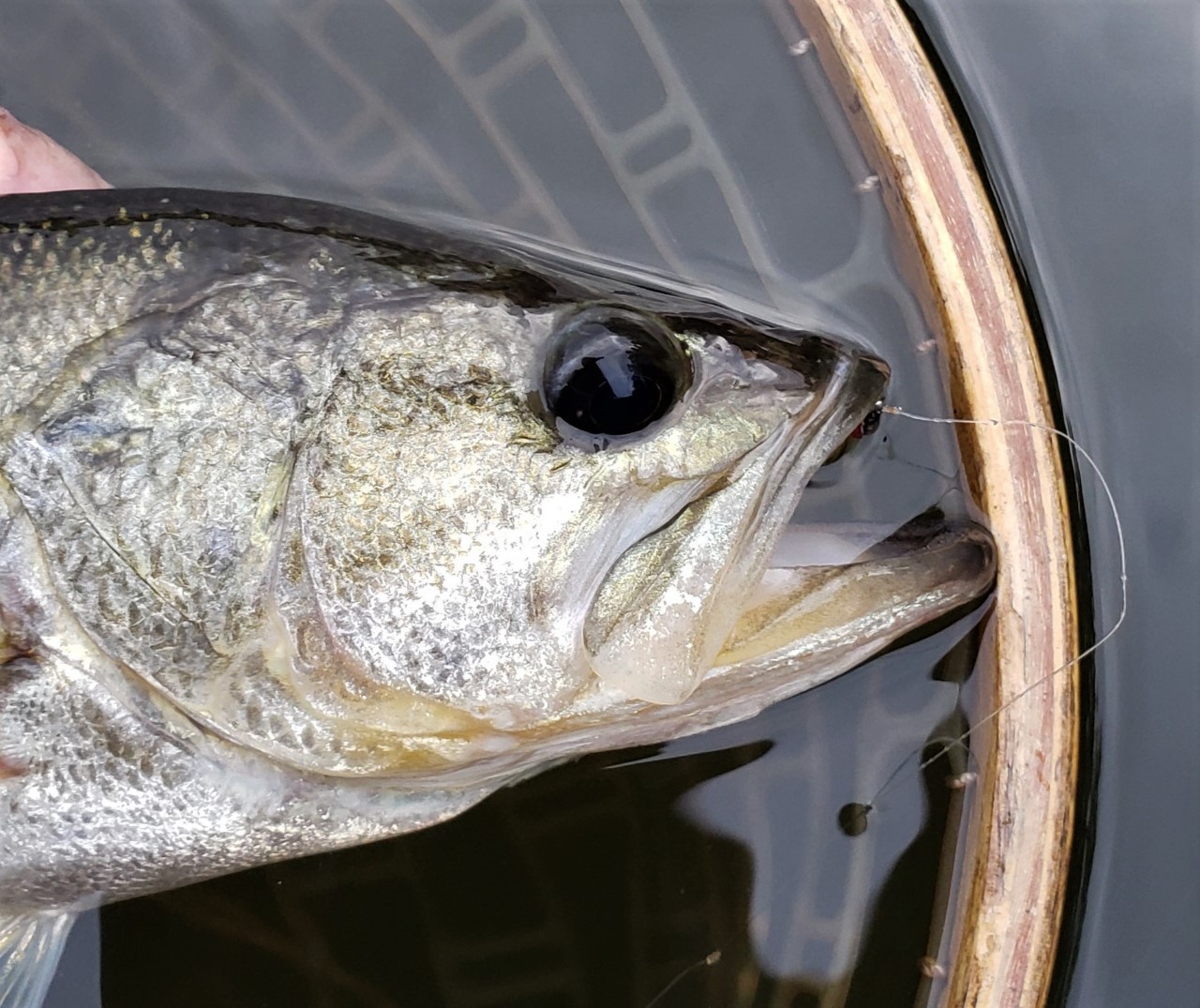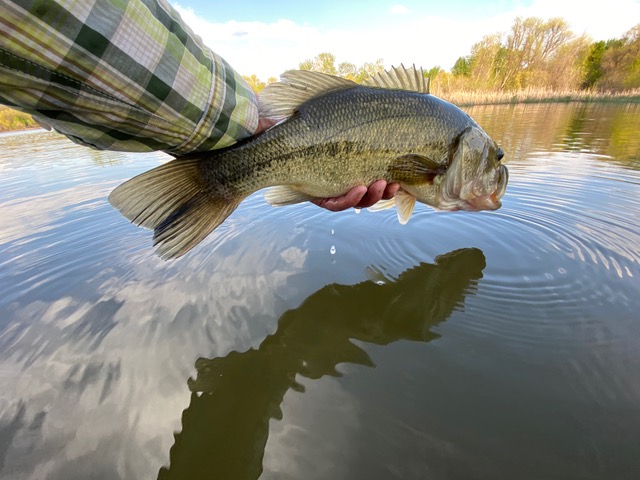Background
Black bass (Micropterus sp.) are perhaps one of the more commonly pursued fish by warmwater fly fishers, but what is not well known is that there are at least 12 existing species (plus subspecies) of black bass. The largemouth black bass (Micropterus salmoides) is the best-known species of the genus. It is widely distributed throughout natural warmwaters of North and Central America, but the species also has adapted well to the many man-made reservoirs and bodies of warm water. However, most of the other representatives of Micropterus are generally are not widely distributed. They are much more dependent upon healthy natural systems for their survival and many have evolved with adaptations and habitat requirements that are unique to the Warmwater systems in which they exist.
Their adaptations to unique wetland niches also make these specialized species of black bass especially vulnerable to over harvest in some cases and man-caused alterations of their environments. Streamside development, pollution from urban and industrial runoffs and future impoundments all are threats to these species and their habitats. The same factors also have strong possibility to compromise our enjoyment of fly fishing for these black bass. The most important first step towards protection of these unique native resources is to be aware and understand them.
Basscatch Mission
1. To enhance fly fisher knowledge of native black bass, their habitats and conservation needs.
2. To secure and improve the recreational opportunities and enjoyment associated with these warmwater species for future generations.
Basscatch encourages FFI members and other fly fishers to learn more about all native black bass species and subspecies by visiting the waters they inhabit and fishing for them. At least one is threatened in parts of the original range and waters are closed to fishing.
Twelve of the more specialized species of black bass and their native warmwaters have been selected for focus. Any fly fisher may participate by catching and releasing four of the selected species to qualify as an awarded Basscatch Member. Each applicant that meets all qualifications for recognition shall receive a certificate that is suitable for framing and an FFI cap.
A second Basscatch award can be received by catching and documenting 4 additional, different bass species. Fly Fishers catching and documenting all 12 species will be eligible for the All Basscatch award.

The eligible Basscatch species are:
- Alabama Bass Micropterus henshalli Hubbs & Bailey, 1940 As in Taylor et al.24
- Altamaha Bass Micropterus cf. coosae Altamaha River Discovered in Freeman et al.88
- Bartram’s Bass Micropterus cf. coosae Bartram’s Delimited in Freeman et al.88
- Cahaba Bass Micropterus cahabae Baker, Johnston & Blanton, 2013 As in Taylor et al.24
- Chattahoochee Bass Micropterus chattahoochae Baker, Johnston & Blanton, 2013 As in Taylor et al.24
- Choctaw Bass Micropterus cf. punctulatus Discovered in Tringali et al.85
- Florida Bass Micropterus salmoides (Lacépède, 1802) Delimitation changed. Most populations were previously
- delimited as M. floridanus
- Guadalupe Bass Micropterus treculii (Vaillant & Bocourt, 1874) As in Taylor et al.24
- Largemouth Bass Micropterus nigricans (Cuvier, 1828) Delimitation changed. Previously delimited at M. salmoides,
- Little River Bass Micropterus cf. dolomieu Little River Discovered in this study
- Neosho Bass Micropterus velox Hubbs & Bailey, 1940 Elevated from synonymy with M. dolomieu
- Ouachita Bass Micropterus cf. dolomieu Ouachita River Discovered in Stark and Echelle 83
- Redeye Bass Micropterus coosae Hubbs & Bailey, 1940 As in Taylor et al.24
- Shoal Bass Micropterus cataractae Williams & Burgess, 1999 As in Taylor et al.24
- Smallmouth Bass Micropterus dolomieu Lacépède, 1802 As in Taylor et al.24
- Spotted Bass Micropterus punctulatus (Rafinesque, 1819) As in Taylor et al.24
- Suwannee Bass Micropterus notius Bailey & Hubbs, 1949 As in Taylor et al.24
- Tallapoosa Bass Micropterus tallapoosae Baker, Johnston & Blanton, 2013 As in Taylor et al.24
- Warrior Bass Micropterus warriorensis Baker, Johnston & Blanton, 2013 As in Taylor et al.
Requirements
- Qualifying black bass must be caught legally and in accordance with all state, local and other applicable laws.
- All specimens must be caught and released within the waters that are specified for each respective species in the document entitled Black Bass Native Ranges.
- All fish must be caught using barbless (or crimped barb), single-hook flies and fly fishing tackle.
- PROPER HANDLING OF FISH IS A MUST. Each qualifying fish must be photographed with minimal stress; i.e., raised above the water by wet hand or soft net, photographed and then released unharmed. Do not photograph fish lying on the bank.

- The award application must include the following information for each subspecies caught.
- Bass species name
- Location: state, county, stream
- Date
- Approximate length
- Fly used
- Signed statement that the above rules were followed
How to Apply
FFI members and other fly fishers may apply for an award as a Basscatch Member by documenting the catch and release of any four of the twelve selected black bass species. A Basscatch Log Form must be filled out for each of the four species and submitted with one signed copy of the Basscatch Fly Fisher Certification. A Basscatch Log Form along with a photograph for each species caught and released for confirmation, and $8 (to cover the cost of materials and processing) should be mailed to:
Fly Fishers International
Conservation Coordinator
1201 US Highway 10 West, Suite E
Livingston, MT 59047
Awarded Basscatch Members will be listed in the The Flyfisher. They will also be provided with a press release to submit to a hometown newspaper. For more information contact the FFI Conservation Coordinator at operations@flyfishersinternational.org or 406-222-9369.
Forms
Basscatch Fly Fisher Certification
Basscatch Project Log (one log per fish to be submitted)
Photo credits: Max Birnkammer, Tom Logan, Bryan Huskey @ FishBite Media